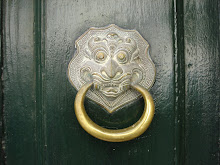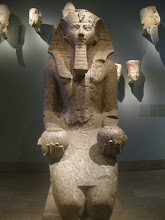We went to celebrate Christmas in Bethlehem and found ourselves at our new Canadian friend Nora's house unexpectedly drinking mulled wine together with a group of Israelis on Christmas Eve.
We had been out all day, watching the Christmas Parade, eating hummus at Afteem, listening to Christmas carols at Manger Square at night, squished in between thousands and thousands of other Christmas celebrating people.
Cold and tired, Nora had kindly invited us over for some hot mulled wine.
A little bit into our mulled wine evening, a colleague of hers called and invited himself and a few friends. Friends that proved to be four Israeli leftists from Tel Aviv. Naturally, the conversation quickly gravitated towards politics and the Conflict.
The Israelis were self-named activists, critical of their government, and had demonstrated with Palestinians in East Jerusalem earlier in the morning.
There were some insensitive Yasser Arafat jokes and (of course) Holocaust talk (because the Holocaust, it seems, inevitably comes up if there are Israeli Jews in the room).
For those of you who have not discussed politics with Israelis, the Holocaust is normally used as a way to excuse or justify, or at least explain Al-Nakba (the ethnic cleansing of Palestine in 1948) - an explanation that Palestinians generally oppose themselves to, since they did not have anything to do with either the Second World War or the Holocaust, and because they (rightly) feel as if their collective experience is belittled in the eyes of the world when referred to as a consequence of the Holocaust.
"Yes, but the Jews needed a safe haven to escape to after the atrocities committed against them in Europe, and..." somehow that makes it okay to kill and forcibly expel something like 800,000 Palestinians, displace them, raze their villages and towns to the ground, steal their farms, their property (even what was in their bank accounts, mind you), and then make them unwelcome strangers in their own homeland? Only to create an Apartheid Jewish state?
Tarek, the only Palestinian in the room, said that there will never be peace until the Israelis understand and accept the Palestinian history.
"No, no, that can never happen because that would mean that all Israelis would have to leave," one of the Israelis said. "That's how I see it; we would have to leave."
Nora's friend had sat quiet up until then, but opened his mouth and matter-of-factly said: "No, it means that you shouldn't have come."
Which sounds terrible in a way, but really summarizes it all. Anybody who reads the recent history of Palestine and Israel can only come to one conclusion (unless they read the fabricated Zionist version, of course, but I'm talking about the fairly objective history that is widely available to everybody who cares enough to learn, whether they are Israelis or not):
It was wrong for the Jewish Europeans to come and establish their own state on the land that was inhabited by the Palestinians (who were, contrary to popular belief, not only Muslims, but Christians and Jews too). No world-power resolution with borrowed legitimacy from the newly formed United Nations that recommended the partition of Palestine can make the colonial enterprise in Palestine right: it was wrong.
Just like it was wrong for Europeans to kill native Americans, native Australians and establish their own colonies-later-states.
That is not to say that Palestine should have been closed to those Jews who came as refugees; only that the Zionist colonial movement to create a Jewish state in the land of Palestine was wrong.
But now that the Israelis are here, there is not much we can do about it. And it should be clear to most people that since the PLO has given up the Palestinian people's claim to Historic Palestine and reduced their struggle to only regain the territories that were stolen in 1967 (the West Bank and Gaza), that for Israelis to accept Palestine's history does not mean that the Israelis must leave.
It means that they will probably reach the conclusion that they shouldn't have come, but now that they are here, they need to recognize that there is another people with a very real claim to the land that they now inhabit. It means that they need to understand that something has to be done very soon to work things out with their Palestinian neighbors, to allow them to win back their human dignity, to stop denying them their human rights, lift the occupation, and agree how to share the resources of the land they both live in.
I understand the Israeli man who thinks he should leave; I too would probably have a very serious crisis of existence if I learned that my country was created by killing and forcibly expelling the people that lived there before me (and can only exist through oppressing and ever so often bombing those who stayed).
And I understand the Israeli woman who said that she would be happy to leave, because she disagrees so much with her own government that she is ashamed to stay, but where can she go? She doesn't have any other citizenship or national identity. Her parents came from the Ukraine, but she doesn't have a Ukrainian passport.
She can migrate and eventually seek citizenship in another country like almost anybody else (from the West, at least), but to expect that all Israeli Jews would do that is simply impractical.
And because of this, the solution is not to expel all Israeli Jews. Because facts on the ground (most of which very carefully thought out and meticulously planned by the Israeli leadership throughout the years) have made it impractical.

We had been out all day, watching the Christmas Parade, eating hummus at Afteem, listening to Christmas carols at Manger Square at night, squished in between thousands and thousands of other Christmas celebrating people.
Christmas Crowd on Manger Square in Bethlehem
Cold and tired, Nora had kindly invited us over for some hot mulled wine.
A little bit into our mulled wine evening, a colleague of hers called and invited himself and a few friends. Friends that proved to be four Israeli leftists from Tel Aviv. Naturally, the conversation quickly gravitated towards politics and the Conflict.
The Israelis were self-named activists, critical of their government, and had demonstrated with Palestinians in East Jerusalem earlier in the morning.
There were some insensitive Yasser Arafat jokes and (of course) Holocaust talk (because the Holocaust, it seems, inevitably comes up if there are Israeli Jews in the room).
For those of you who have not discussed politics with Israelis, the Holocaust is normally used as a way to excuse or justify, or at least explain Al-Nakba (the ethnic cleansing of Palestine in 1948) - an explanation that Palestinians generally oppose themselves to, since they did not have anything to do with either the Second World War or the Holocaust, and because they (rightly) feel as if their collective experience is belittled in the eyes of the world when referred to as a consequence of the Holocaust.
"Yes, but the Jews needed a safe haven to escape to after the atrocities committed against them in Europe, and..." somehow that makes it okay to kill and forcibly expel something like 800,000 Palestinians, displace them, raze their villages and towns to the ground, steal their farms, their property (even what was in their bank accounts, mind you), and then make them unwelcome strangers in their own homeland? Only to create an Apartheid Jewish state?
Tarek, the only Palestinian in the room, said that there will never be peace until the Israelis understand and accept the Palestinian history.
"No, no, that can never happen because that would mean that all Israelis would have to leave," one of the Israelis said. "That's how I see it; we would have to leave."
Nora's friend had sat quiet up until then, but opened his mouth and matter-of-factly said: "No, it means that you shouldn't have come."
Which sounds terrible in a way, but really summarizes it all. Anybody who reads the recent history of Palestine and Israel can only come to one conclusion (unless they read the fabricated Zionist version, of course, but I'm talking about the fairly objective history that is widely available to everybody who cares enough to learn, whether they are Israelis or not):
It was wrong for the Jewish Europeans to come and establish their own state on the land that was inhabited by the Palestinians (who were, contrary to popular belief, not only Muslims, but Christians and Jews too). No world-power resolution with borrowed legitimacy from the newly formed United Nations that recommended the partition of Palestine can make the colonial enterprise in Palestine right: it was wrong.
Just like it was wrong for Europeans to kill native Americans, native Australians and establish their own colonies-later-states.
That is not to say that Palestine should have been closed to those Jews who came as refugees; only that the Zionist colonial movement to create a Jewish state in the land of Palestine was wrong.
But now that the Israelis are here, there is not much we can do about it. And it should be clear to most people that since the PLO has given up the Palestinian people's claim to Historic Palestine and reduced their struggle to only regain the territories that were stolen in 1967 (the West Bank and Gaza), that for Israelis to accept Palestine's history does not mean that the Israelis must leave.
It means that they will probably reach the conclusion that they shouldn't have come, but now that they are here, they need to recognize that there is another people with a very real claim to the land that they now inhabit. It means that they need to understand that something has to be done very soon to work things out with their Palestinian neighbors, to allow them to win back their human dignity, to stop denying them their human rights, lift the occupation, and agree how to share the resources of the land they both live in.
I understand the Israeli man who thinks he should leave; I too would probably have a very serious crisis of existence if I learned that my country was created by killing and forcibly expelling the people that lived there before me (and can only exist through oppressing and ever so often bombing those who stayed).
And I understand the Israeli woman who said that she would be happy to leave, because she disagrees so much with her own government that she is ashamed to stay, but where can she go? She doesn't have any other citizenship or national identity. Her parents came from the Ukraine, but she doesn't have a Ukrainian passport.
She can migrate and eventually seek citizenship in another country like almost anybody else (from the West, at least), but to expect that all Israeli Jews would do that is simply impractical.
And because of this, the solution is not to expel all Israeli Jews. Because facts on the ground (most of which very carefully thought out and meticulously planned by the Israeli leadership throughout the years) have made it impractical.



















No comments:
Post a Comment